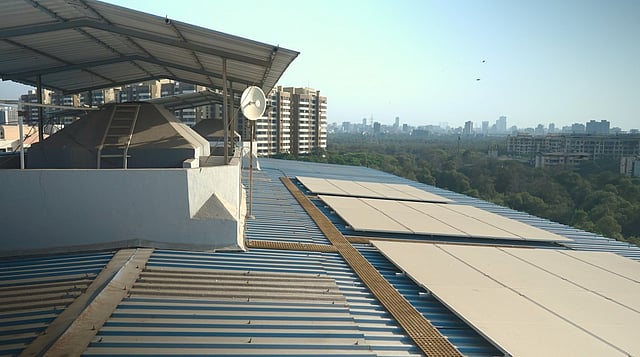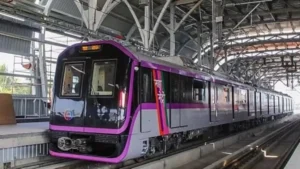Power bill cut from ₹52,000 to ₹18,000: Mira Road society becomes first in Asia to get green retrofitting certificate

Power bill cut from ₹52,000 to ₹18,000: Mira Road society becomes first in Asia to get green retrofitting certificate
Thirty years old and once considered an aging structure, a residential society in Mira Road has now become a shining example of how older buildings can evolve into climate-friendly, energy-efficient homes. The Nav Yuwan Housing Society, which houses 280 families, has managed to cut its monthly electricity bill from ₹52,000 down to just ₹18,000 — a transformation that has also earned it international recognition.
The change didn’t come overnight. With support from the Aga Khan Agency for Habitat (AKAH), residents embraced a host of eco-conscious upgrades. Their efforts were recently acknowledged with the EDGE Advanced green building certification — a rare achievement for a residential complex, and the first of its kind in Asia.
Rahim Karovalia, a member of the society’s managing committee, showcased a humble-looking corridor tubelight that automatically dims and brightens depending on movement. “This little change, multiplied across the building, has made a world of difference,” he explained.
In total, 150 motion-sensor lights, 14 energy-saving floodlights, a 44-kilowatt rooftop solar system, and even a kitchen garden now form part of the society’s sustainable infrastructure. A composting unit is also in the pipeline to help reduce waste and support their budding urban farm.
These combined efforts have delivered tangible results:
- 41% drop in energy use
- 35% water savings
- 59% improvement in material efficiency
- 232.78 tonnes of CO₂ emissions avoided each year
Residents have seen personal benefits too. Parvin Jasani, 64, mentioned her monthly electricity bill fell from ₹1,800 to around ₹1,000. “We never imagined such small upgrades could make such a large impact,” said to TOI.
Mira Road’s Nav Yuwan Society is setting an example in sustainability#MiraRoad #GreenBuilding #SustainableLiving #ClimateAction #EcoFriendly #SolarEnergy #MumbaiUpdates #SmartCities #UrbanGreening #MumbAI pic.twitter.com/YMri75IBHz
— MUMB.AI (@Mumb_Ai) September 9, 2025
What makes this project especially inspiring is its message: you don’t need to demolish and rebuild to go green. Retrofitting existing buildings, experts say, can cut emissions by up to 70% compared to new construction. According to AKAH India CEO Prerana Langa, this initiative is a working model of how older urban structures can be revitalized in a sustainable and cost-effective manner.
The broader vision aligns with the Mira Bhayandar Climate Action Plan (2024–2050), which targets a 36% emissions cut by 2047. Given that over 60% of the city’s electricity is consumed by residential users, community-led transformations like Nav Yuwan’s play a critical role in achieving those goals.
Awareness was just as important as hardware. Alongside tech upgrades, workshops were held to educate residents on the financial and environmental benefits of energy-efficient appliances, responsible AC use, and even lifestyle tweaks like using buckets instead of showers.
Anisha Maknojiya, 48, reflected on the learning curve: “We didn’t realize our old appliances were quietly costing us more. Replacing them felt expensive at first, but it’s already paying off.”
The total cost per household? Just around ₹17,500 — a figure residents say has already begun to return value through lower bills. The success has caught the attention of other housing societies across Mira Bhayandar, many of whom are exploring similar upgrades.
AKAH has also expanded retrofitting to three municipal schools, proving the model is not just effective but replicable. CEO Langa believes scaling up is entirely possible with the right partnerships — tapping into municipal budgets, CSR funds, and even bulk procurement strategies to drive down costs and increase adoption.
This isn’t just a story of lower bills — it’s a blueprint for urban climate action, built one family, one lightbulb, and one rooftop panel at a time.












